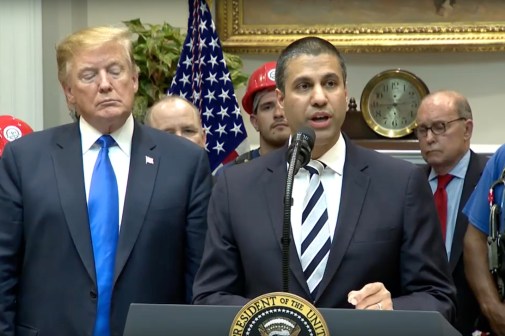House subcommittee considers rural-friendly broadband regulations, ‘dig-once’ requirement for highway projects

In a move to cut red tape and expand U.S. broadband networks, a House subcommittee for Communications and Technology is considering two proposals that would mandate broadband conduits in highway projects and streamline broadband agreements and deployments on public lands.
On Tuesday, the bipartisan group of congressmen heard testimony from experts recommending solutions to fill in connectivity gaps across the country. The proposals for consideration suggested legislation was needed to create an inventory of federal assets that could be used to install broadband and to require that broadband conduits — underground pipes used to house broadband cables or fiber — be part of all federally funded highway projects. The proposals also called leases to use simple templates and for the process around communication facility applications to be simplified for faster approvals. The two pieces of potential legislation include Broadband Conduit Deployment Act of 2017 and a draft bill that has yet to be named.
Tennessee Rep. Marsha Blackburn, a Republican and subcommittee chair, said the aim of the hearing was to assist vulnerable Americans caught on the other side of the digital divide who lack access to modern services, education, and potential job opportunities.
“Lack of broadband access, particularly in rural areas, is an issue which affects the constituents of numerous members of the subcommittee, Republican and Democrat,” Blackburn said in a press release. “We must cut through the red tape by streamlining permitting processes and implement accurate availability data in order to solve the broadband dilemma.”
In the U.S. today, roughly 10 percent — or 34 million people — are without access to basic broadband, and in rural towns and counties, these stats spike to 39 percent, or about 23 million people, according to the Federal Communications Commission. Further, in public schools the FCC reports that only 41 percent have access to high-speed internet.
Between a panel of federal, private and public speakers there was a general consensus that the framework for federal permitting and approvals have created an unintended roadblock for broadband investment and deployment.
At the hearing, Joanne Hovis, president of the communications infrastructure consultancy CTC Technology and Energy, stressed need for public-private partnerships for the U.S. to improve its broadband connectivity.
“By working cooperatively with state and local governments, the private sector stands to benefit in multiple ways — as partners, as users of the networks to market their goods and services in the rapidly emerging information-based global economy, and as contributors to the next generation of innovations,” Hovis said.
While American broadband is getting faster, with median speeds quadrupling between 2011 and 2015, and reaching an average of 39 Mbps in 2016. A StateScoop analysis of connected communities indicates that states and cities are still struggling to supply accessible broadband and wireless infrastructure. What results from this is that federal funding is often needed or some kind of private-public partnership via services like Google Fiber or community-driven broadband cooperatives.
If American cities are going to remain competitive with emerging technologies like the Internet of Things, 5G and others, Blackburn said easing regulatory burdens is the place to start. Specifically, she highlighted a need to improve regulations around federal government’s right of way laws and processes for telecom companies to find and build on cell towers.
“We are all tired of hearing stories about parents driving their children to the local McDonald’s for Internet access in order to finish their homework assignments. We owe them better, period.” Blackburn said.





